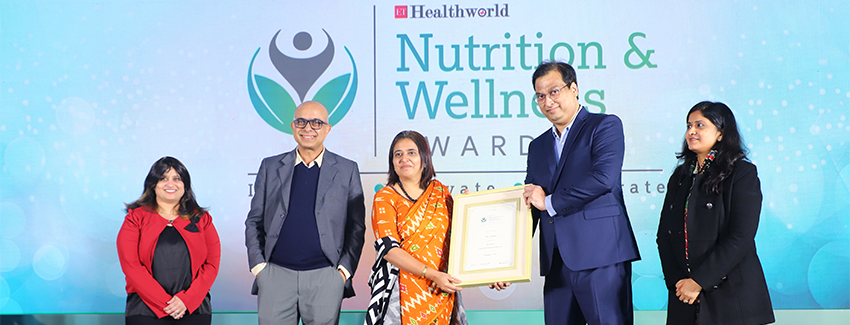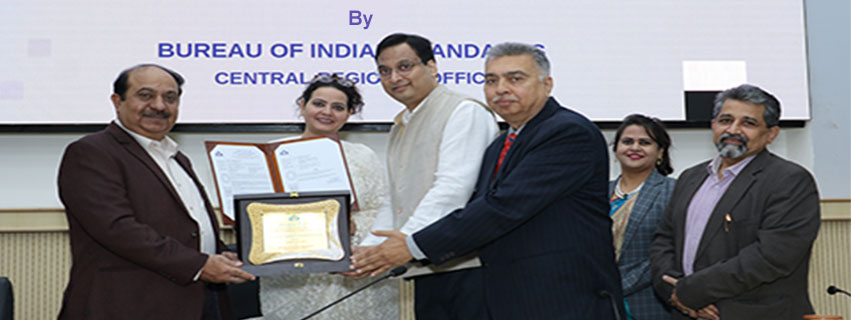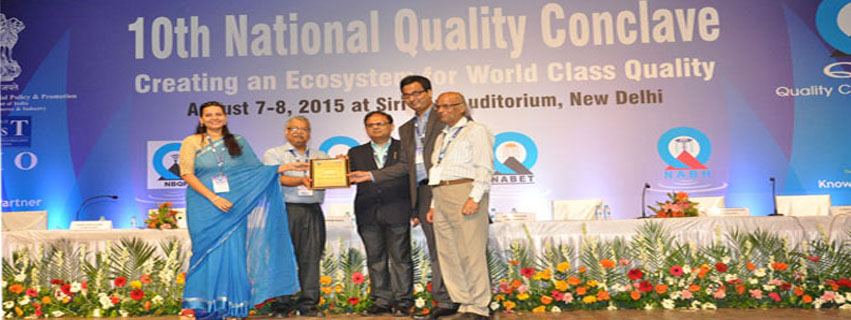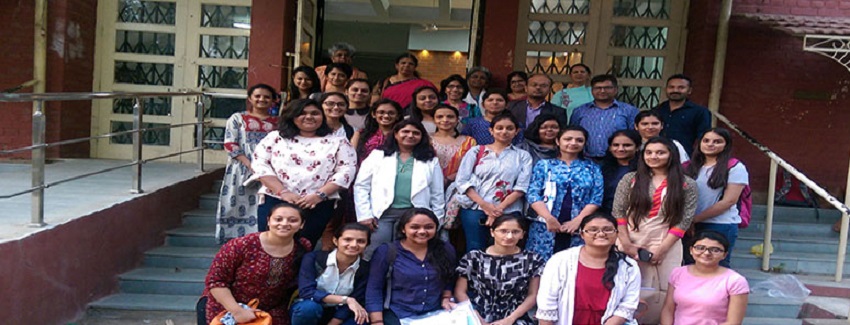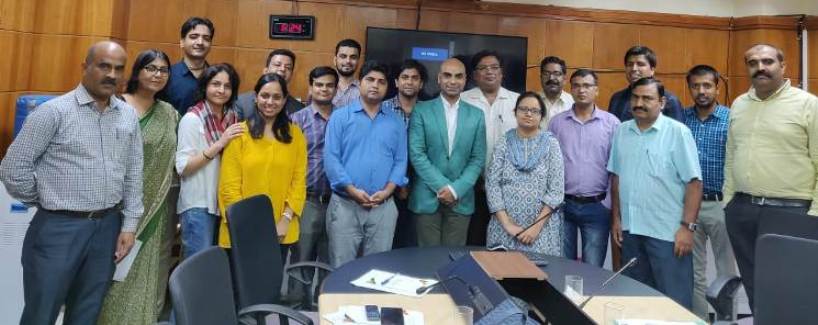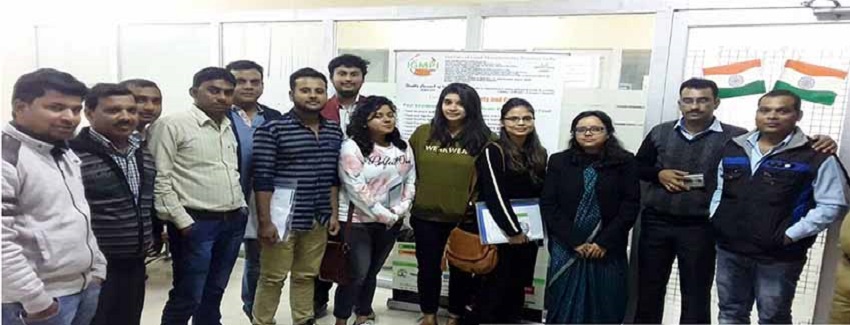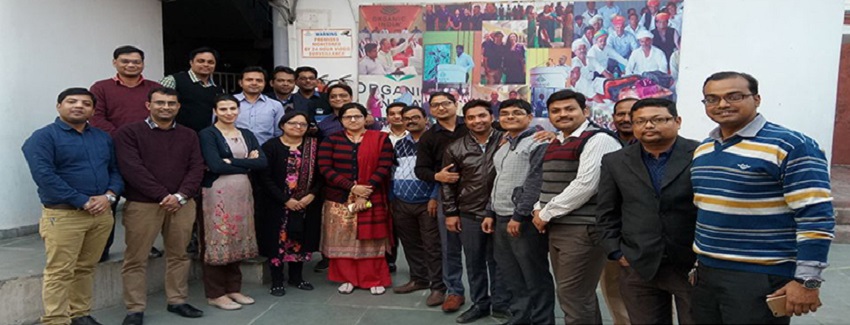(An Autonomous Body Recognized by Ministry of Commerce & Industry, Government of India)
Competency based placement focussed Education | Training | Research | Consultancy
Post Graduate Diploma/Executive Diploma in Agrochemical Regulatory Affairs
A Post Graduate Diploma in Agro Chemicals is a program that furnishes understudies with the information and abilities to oversee and apply chemical compounds in horticulture to increment crop yield and quality. A Diploma in Agrochemicals is a specific program intended to furnish understudies with a complete comprehension of the standards and practices connected with the utilization of chemicals in the cultivation of crops. This recognition expects to outfit people with the information and abilities essential for the mindful and compelling use of agrochemicals in the development of harvests. The diploma in Agrochemicals commonly covers a scope of subjects, including but not restricted to Understanding the science behind agrochemicals, including their structure, methods of activity, and communications with plants and the climate, Pesticides, and Herbicides. In this course, the Understudy will concentrate on the various sorts of pesticides and herbicides, their purposes, and the standards of irritation and weed administration. Investigating the job of composts in plant nourishment, soil fruitfulness, and economical soil the board rehearses. Finding out about comprehensive ways to deal with bug control that consolidate organic, social, and mechanical strategies notwithstanding chemical intercessions.
The Diploma in Agro Chemicals includes the areas such as soil science, plant nutrition, pest management, crop physiology, agrochemicals and their formulations, application and dosage of agrochemicals, safety and health, and environmental protection.
Programme Structure
International Affiliation with
Module 1: Introduction to Agriculture Sector, Prologue to agrochemicals, its Science, and their job in present-day farming
Module 2: Investigation of Yield assortments, development practices, and factors influencing crop development
Module 3: Principles of Pest Management: Understanding soil composition, fertility, and nutrient management for sustainable agriculture
Module 4: Introduction to Pesticides and their types, their life cycles, and standards of pest control
Module 5: Composts and Plant Nutrition: Investigation of herbicides, weed Identification, and systems for weed control
Module 6: Integrated Pest Management (IPM): Understanding the role of fertilizers in plant nutrition, soil amendments, and nutrient deficiency symptoms
Module 7: Natural Effect of Agrochemicals: Top-to-bottom investigation of IPM procedures, consolidating organic, social, and mechanical techniques in addition to chemical control
Module 8: Agrochemical Application Techniques: Assessing the environmental consequences of agrochemical use and exploring sustainable practices
Module 9: Oversee the preparation, submission, and maintenance of product registrations under the Fertilizer Control Order (FCO) and Central Insecticides Board (CIB) for agrochemicals
Module 10: Regulatory Compliance and Safety: Understanding legal and regulatory aspects of agrochemical usage, safety measures, and compliance with environmental standards
Module 11: Indian and International regulatory requirements for Agri biological products and familiarity with relevant guidelines and standards
Module 12: Dossier preparation and submission for FCO (Fertilizer Control Order) and CIB (Central Insecticides Board) registrations
Module 13: Case Study
Module 14: Capstone Project
Eligibility
Graduates in any discipline are eligible for our Post Graduate Diploma, Executive Diploma and Professional Certification Programmes.
Programme Duration
The minimum duration to complete the PG diploma programme is 12 months and maximum is 24 months. The minimum duration to complete the executive diploma programme is 6 months and maximum is 12 months.
Programme Mode
Registrations are currently open for regular and Part-time (Online Live Classes) both modes.
Programme Deliverables
A comprehensive study material for all the modules in hard copies ensuring the needs of the audience. The accompanying training material is appropriately aligned with the current Industry’s expectations.
- Assignments for all the programme modules for continuous evaluation and guidance.
- Interactive or online live sessions on all key areas of the programme giving all flexibility to the participants.
- Online Live Classes/Part-time for all the modules will be conducted on the weekends. Moreover, a doubt clearing session will also be scheduled before the examination.
- All the efforts are made by IGMPI faculty members to make the entire programme modules easily understandable.
- Assessment and evaluation for all the programme modules in order to enhance the levels of competencies and skills of the participants leading towards the objective of application in the job.
- At the end of each programme modules, the trainers shall obtain feedback from the participants using specially designed questionnaires.
- All learning and training delivery initiatives shall be conducted in English.
Examination & Certification
All the participants are obliged to timely submit completed assessment assignments (during the programme, usually after every module) and appear for an online exam at the end of the programme. After successful completion, the participants will be awarded Post Graduate Diploma/Executive Diploma in Agrochemical Regulatory Affairs by Faculty of Food Safety and Quality, IGMPI. For all the above-mentioned modules elaborate programme material, self-assessment assignments and project work details would be provided by the Institute from time to time. Details get updated on the webpage as well.
Discipline in Classes and Examination
Every student is required to observe a disciplined behaviour during her/his classes, assessments & examinations and to follow instructions from the Professors. Any act of indiscipline may result into discredit & it will be mentioned in her/his academic report.
Placement Assistance & Corporate Relations
Graduates of the Diploma in Agro Chemicals can find employment in the agricultural sector as agrochemical sales representatives, agrochemical product development scientists, agrochemical application specialists, farm managers, or agricultural extension officers, Regulatory Affairs (Agrochemical), Lead - Regulatory Affairs - AgriTech
Employment Areas
- Agriculture Industry
- Aquariums
- Biotechnology Firms
- Chemical Industry
- Educational Institutes
- Environmental Management and Conservation
- Food Institutes
- Forensic Crime Research
- Forest Services
Future career prospects
With the increasing demand for food production and the need to sustain crop yields, there is a growing demand for professionals trained in agrochemical management. Diploma in Agro Chemicals can work in public and private agrochemical companies, agrochemical research and development firms, agricultural extension services, or start their own agrochemical-related businesses.
Diploma holders can pursue careers in regulatory affairs departments of agrochemical companies, where they would be responsible for ensuring compliance with local and international regulations governing the development, registration, and sale of agricultural chemicals. Opportunities exist within government agencies responsible for regulating agrochemicals, such as the Environmental Protection Agency (EPA) in the United States or the European Food Safety Authority (EFSA) in Europe. Positions may involve evaluating the safety and efficacy of agrochemical products and overseeing regulatory compliance. Diploma holders can work for consultancy firms that specialize in providing regulatory compliance and strategic advice to agrochemical companies. They may assist clients with product registration, risk assessment, and compliance with changing regulatory landscapes.
Programme Fee Details
Programme fee details will appear here.
Last date for submitting completed Application Form: 29th Dec 2025.
For further enquiries, call or write to us on:
18001031071
(Toll Free -9:00 am to 5:30 pm IST-except on Central Government holidays)/
info@igmpi.ac.in
GLOBALG.M.P.™ NEWSLETTER
Other Programmes
- Agroinformatics
- Agro Processing
- Agrochemical Technology
- Bakery and Confectionery
- Bakery Science and Technology
- Beverage Technology
- Dairy Science and Technology
- Fats and Oil Processing
- Food Analysis & Quality Assurance
- Food Analytical Instrumentation
- Food Biochemistry
- Food Engineering
- Food Intellectual Property Rights
- Food Microbiology
- Food Packaging
- Food Processing
- Food Processing and Preservation
- Food Product Development
- Food Quality Assurance & Quality Control
- Food Regulatory Affairs
- Food Safety
- Food Safety in Hospitality Industry
- Food Science and Technology
- Food Supply Chain Management
- Frozen Products Processing Technology
- Fruits and Vegetable Technology
- Good Laboratory Practice
- Good Manufacturing Practices
- Meat and Seafood Technology
- Nutraceuticals
- Organic Farming and Food Production System
- Spices & Plantation Product Technology
- Tea Technology

